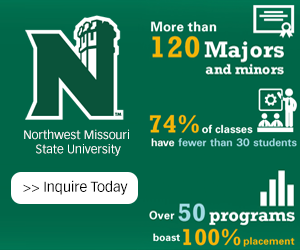Broadcasting is an exciting and rewarding subject to study, but once you graduate, what options are out there for you in the working world? Read on for an overview of the types of career paths available to you after your broadcasting education.
When most people think of broadcasting they imagine the smiling, immaculately coiffed reporters and anchors they see in sports and the evening news. But the reach of the entire industry, and thus the careers in broadcasting available to international students just out of school, is much roader. With such a wide variety of jobs in television, radio, and online, broadcasting most certainly has something for everyone.
On-Air Talent
Let's start off with those on-screen and on-air personalities that are most commonly associated with broadcasting. On-air talent – that's anyone appearing on the television screen or radio soundwaves, such as anchors, reporters and correspondents, and talk show hosts – are a small but integral part of broadcasting. They are the face and voice of the broadcast, each tasked with a combination of finding, interpreting, and delivering relevant stories and information to the broadcast audience. On-air jobs, especially those jobs in television, are high exposure, high responsibility, and may even come with an amount of local or national celebrity. Those who desire on-air careers in broadcasting will need to perfect their speech, appearance, and poise and attain the general knowledge necessary to process a wide variety of story types.
Technical Positions
Careers in broadcasting behind the camera or microphone are far more numerous. On the frontlines of the daily broadcasting battle are countless workers in technically-oriented jobs. Camera-persons and audio recording engineers work hard to attain the best visual and audio footage possible, both in the comfort of the studio and in the field. While it may not come off as quite as adventurous, keep in mind that every daring field reporter has at least one more person there to record the story! Editors, on the other hand, stick almost exclusively to the broadcast studio, processing and refining recorded footage as it comes in so it can be presented to the audience. Technical jobs in television and radio such as editing or capturing footage are unique in that they require both deep technical knowledge and a certain level of creativity, as these people are among the most influential in shaping the audio and visual footage that the audience will hear and see. For international students with a love of technology and electronics as well as a knack for creativity, one of broadcasting's many behind-the-scenes technical careers may be perfect.
Producers
Behind-the-scenes careers in broadcasting aren't all cables, dials, and buttons, though. A handful of different people shape each broadcast without much involvement in the technical details. Foremost among these people is the producer, whose varied and often difficult duties include dispatching and communicating with reporters in the field, choosing what will be broadcast and how, and overseeing the entire broadcast itself. Producers need to have a working knowledge of all aspects of broadcasting; while for some disciplines – namely the technical ones – their mastery needn't be complete, they need to know enough to be able to assess and guide every other person involved in the broadcast. Producing can be extremely high-pressure and carries a great responsibility, making it an unattractive prospect for most but a very desirable position for just the right kind of ambitious, problem-solving, performing-under-pressure personality.
Newswriters
Somewhat less intense among the non-technical off-camera positions is that of the newswriter. Newswriting and reporting often coincide but don't necessarily have to. Whether a reporter or not, a newswriter is tasked with researching stories (often going to the field for more information and interviews) and writing the actual text of the story. A newswriter must have strong research skills and be able to write in a direct but pleasant style.
This overview just scratches the surface of the jobs in radio, television, and web broadcasting open to international students. There are countless careers in broadcasting no matter what you are looking for after graduation!

